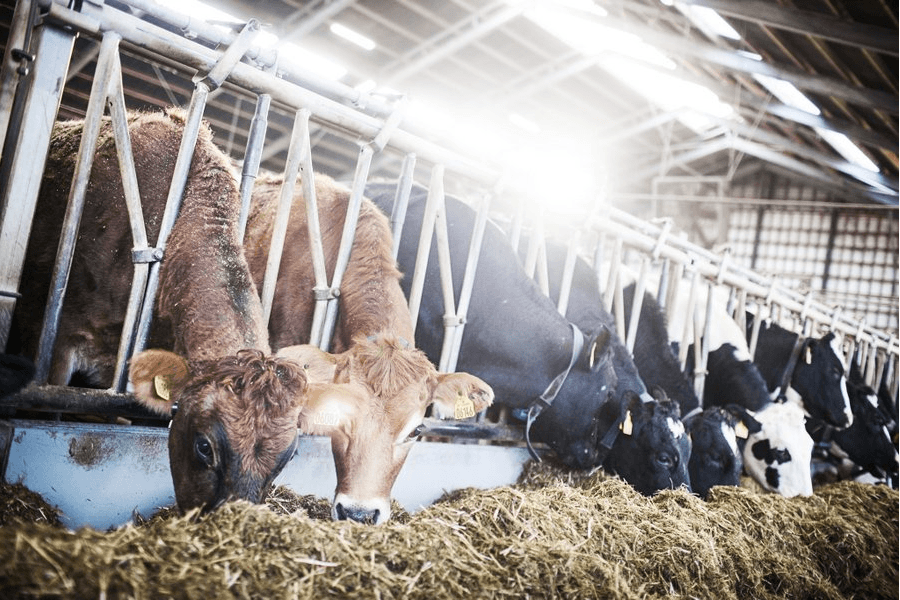Aug 18 2016
The EU Commision requires Denmark to reduce drastically emissions of greenhouse gases from agriculture. But it is currently not possible to quantify emissions of methane from livestock manure - and to document effects of changes in management. A new research article addresses this challenge and proposes a method which could be an important step towards quantifying methane emissions.
 Animals in the house are a source of gases, and in practice emissions from livestock and their manure cannot be separated.(Photo: AU)
Animals in the house are a source of gases, and in practice emissions from livestock and their manure cannot be separated.(Photo: AU)
It is currently not possible to quantify emissions of methane from livestock manure. This is a significant problem, in particular at a time where the EU Commision requires Denmark to reduce drastically emissions of greenhouse gases from agriculture. Without methods to quantify emissions, it is also not possible to document effects of changes in management.
A new research article, published this week in the journal PloS ONE, addresses this challenge and proposes a method which could be an important step towards quantifying methane emissions and degradation processes associated with manure management.
The specific challenge is that the mainly liquid manure (slurry) is collected in pits under animal confinements for up to a month before exported to an outside storage tank, or for treatment. During this period degradation of manure organic matter begins and may lead to emissions of both methane and carbon dioxide. However, animals in the house are also a source of both gases, and in practice emissions from livestock and their manure cannot be separated. As a result, the total emission of methane from manure in pits and outside storage tanks, and the degradation of manure organic matter, cannot be verified.
The new method proposed here is based on laboratory measurements of methane production in liquid manure samples collected on farms. A simple model is used to calculate daily emissions. This model can then be used to evaluate effects of changes in management or treatment of the manure, for example biogas treatment.
Methane is, after carbon dioxide, the most important source of greenhouse gases from agriculture, and the most important on-farm source. Here the largest single source is animal digestion, especially in ruminants such as cattle, whereas on pig farms manure is the main source. Since the residence time of methane in the atmosphere is short compared to other greenhouse gases, a reduction of methane will be particularly effective in the short term at reducing climate forcing. Moreover, methods to reduce methane emissions from manure are already available (biogas treatment, slurry acidification). For these reasons methane emissions from livestock manure is an obviouos target for greenhouse gas mitigation.
Degradation of manure organic matter leads to emissions of methane, but even larger emissions of carbon dioxide. Both methane and carbon dioxide contain carbon from manure organic matter that is degraded. This loss of organic carbon is critical for the biogas potential of manure which is directly related to the degradable organic matter left in the manure. For example, a shorter collection period would likely increase biogas production while at the same time reducing methane emissions, but currently these effects cannot be documented. The article discusses this synergy and concludes that a new method must also be able to quantify the emission of carbon dioxide, in order to estimate the loss of degradable organic matter from slurry pits. Plans to further develop the method have been described in a new research proposal in collaboration with research institutions in Germany, Netherlands, Great Britain and Sweden, and a Swedish company.